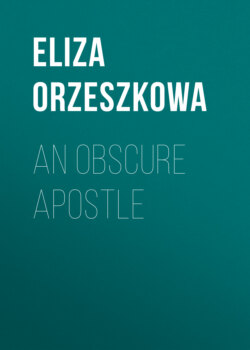Читать книгу An Obscure Apostle - Eliza Orzeszkowa - Страница 4
На сайте Литреса книга снята с продажи.
ELIZA ORZESZKO
ОглавлениеIn Lord Palmerston's days, the English public naturally heard a great deal about Poland, for there were a goodly number of Poles, noblemen and others, residing in London, exiles after the unsuccessful revolution, who, believing that England would help them to recover their lost liberty, made every possible effort to that end through Count Vladislas Zamoyski, the prime minister's personal friend. But even in those times, when the English press was writing much about the political situation in Poland, little was said about that which constitutes the greatest glory of a nation, namely, its literature and art, which alone can be secure of immortality. Only lately, in fact, has any public attention been paid by English people to Polish literature. However, among the authors who have attracted considerable attention of late, is the writer of "By Fire and Sword," whose "Quo Vadis," has met with a phenomenal reception. Henryk Sienkiewicz has by his popularity proved that in unfortunate, almost forgotten, Poland, there is an abundance of literary talent and an important output of works of which few English readers have any conception. For instance, who has ever heard, in Great Britain, of Adam Michiewicz the great Polish poet, who, critics declare, can be placed in the same category with Homer, Virgil, Dante, Tasso, Klopstock, Camoens, and Milton? Joseph Kraszewski as a novel writer occupies in Poland as high a position as Maurice Jokai does in Hungarian literature, while Mme. Eliza Orzeszko is considered to be the Polish Georges Sand, even by the Germans, who are in many respects the rivals of Slavs in politics and literature.
Henryk Sienkiewicz, asked by an interviewer what he thought about the contemporary Polish literary talents, replied: "At the head of all stand Waclaw Sieroszewski and Stefan Zeromski; they are young, and very promising writers. But Eliza Orzeszko still holds the sceptre as a novelist."
When the "Revue des Deux Mondes" asked the authors of different nationalities to furnish an essay on women of their respective countries, Mme. Orzeszko was chosen among the Polish writers to write about the Polish women. It may be stated that translations of her novels appeared in the same magazine more than twenty years ago. She is not only a talented but also a prolific writer. She has suffered much in her life, and her sufferings have brought out those sterling qualities of soul and heart, which make her books so intensely human, and characterise all her works, and place her high above contemporary Polish writers. The present volume may stand as a proof of her all-embracing talent.
